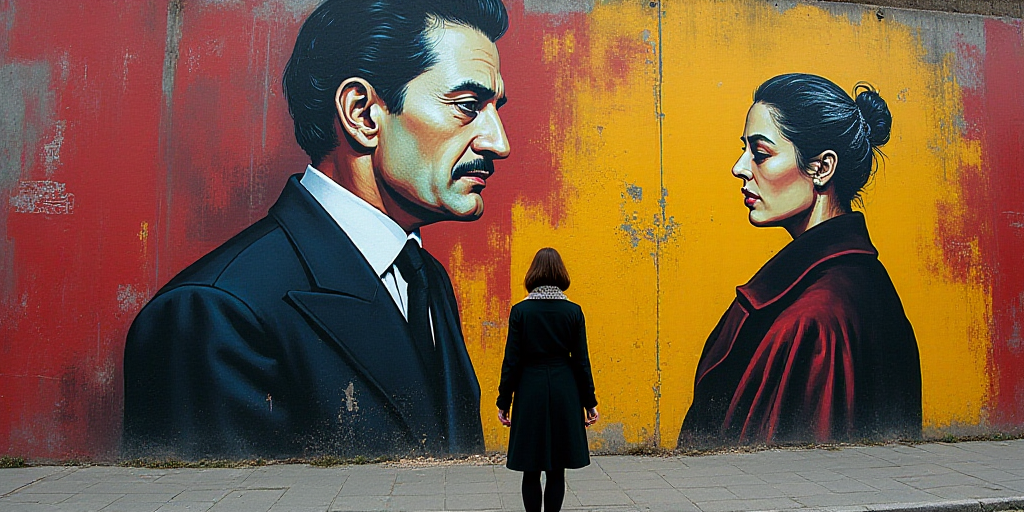Shareeduh McGee’s Efforts to Preserve George Floyd’s Legacy
Shareeduh McGee is dedicated to keeping the memory of her cousin, George Floyd, alive. Millions took to the streets worldwide to protest Floyd’s death at the hands of police, a Black man from Minneapolis who uttered “I can’t breathe” moments before dying as a police officer knelt on his neck in May 2020. His plea became a rallying cry for the protest movement, demanding police accountability and racial justice. Companies pledged substantial sums to address systemic discrimination, and conversations about structural racism took center stage.
A Retreat from Racial Equity Support
However, five years after Floyd’s death, the country has experienced a stark decline in support for racial equity efforts. Company commitments and government pledges have either been reduced or eliminated. Diversity, equity, and inclusion (DEI) policies and programs have come under scrutiny from President Donald Trump’s administration. Some of these setbacks predate his return to the Oval Office.
“George Floyd’s death was a supreme sacrifice, and if opportunities are not created for people to learn from it or if no changes result from such a great loss, then his death was in vain,” McGee said at a Houston event commemorating Floyd’s life. She expressed disappointment but not surprise at the setbacks and the Department of Justice’s decision to abandon Floyd-driven oversight and investigations into other Black Americans’ deaths at the hands of law enforcement.
Continued Fight for Racial Justice
Advocates for racial justice assert that, despite the lack of significant reforms, the struggle for racial justice has persisted across the nation. However, they acknowledge that the road ahead is challenging, characterized as a strong backlash against diversity and civil rights efforts.
“Many across the country realized that this open murder was not only atrocious but closed the loop on the issue of treatment of Black people, particularly Black men, in this country,” said Derrick Johnson, NAACP president. “But the other side of that story is there’s a troubling fatigue in this country”
Experts argue that periods of violent backlash are not new in U.S. history, even after the Civil Rights Movement. The nation has experienced “racial fatigue” or resentment following advancements ensuring marginalized groups’ rights.
A Pew Research Center survey conducted on May 7, 2025, found that 72% of adults believed racial inequality attention did not lead to changes benefiting Black Americans. Additionally, 67% of Black Americans doubted the nation could ever achieve racial equality.
“Skepticism has risen significantly in the past five years,” said Juliana Horowitz, co-author of the report and Pew Research associate director. “It’s a substantial shift.”
Corporate Debate in America
Americans remain divided on the importance of corporations making political or social issue statements, according to the Pew report, as several companies have completely abandoned their DEI plans or continued supporting them discreetly.
“We can hold the private sector accountable because they cannot afford our withdrawal of dollars,” said Rev. Al Sharpton, who officiated Floyd’s funeral and will join his family in Houston for the anniversary on Sunday. Sharpton, founder of the National Action Network, has met with several CEOs to urge them to reverse their DEI budget cuts or maintain their policies.
Civil rights advocates have urged companies to increase minority representation in leadership positions and invest in underserved communities.
Kevin McGary, a conservative and founder of the nonprofit Every Black Life Matters in Texas, stated that following Floyd’s death, some companies felt pressure to commit to promoting equity in hiring practices.
While civil rights advocates claim DEI ensures qualified minority candidates have equal opportunities, McGary and other critics argue that these efforts lack merit-based focus, stating “everyone should be pushed to achieve an excellent level.”
The Movement at a Crossroads
Some have questioned the impact of Black Lives Matter protests due to the absence of radical reforms. However, experts told Reuters that the movement shifted the national conversation and narrative.
Marc Morial, president of the National Urban League, noted that under President Joe Biden’s administration, several officers were condemned, and 12 civil rights investigations were launched against police departments. However, the Biden administration failed to secure any binding agreements before leaving office.
“This progress, while important, was not what we desired, and it now seems even more threatened,” Morial said. “We need mayors, city council members, state legislatures, and local government officials to pick up the reform torch.”
The Movement’s Current State
Melina Abdullah, founder of BLM Grassroots, stated that the movement is “at a crossroads,” shifting its focus to state-level political efforts—including advocating for mental health services funding and transgender Black rights—where the impact could be more pronounced.
“It’s time to intensify our efforts,” Abdullah said.
The Movement for Black Lives, a national network of over 100 organizations, stated that its mission remains unchanged.
“Black people have always been a canary in the coal mine, leading the charge against oppressive systems,” said Amara Enyia, M4BL co-executive director. “This didn’t start in 2020, and it hasn’t changed in the past five years.”






